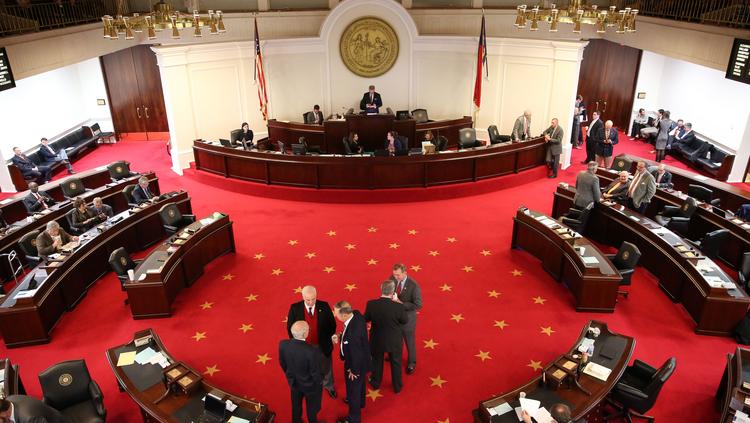Legislators criticized the state Department of Public Safety for approving millions in spending on permanent affordable housing developments when lawmakers wanted the money to go to emergency and short-term housing for people looking for places to live after disasters.
A report to a legislative committee on Monday said the department did not follow state law or best practices when it selected the N.C Community Development Initiative to receive state money and gave it up-front, lump-sum payments of $5.35 million.
The Joint Legislative Program Evaluation Oversight Committee voted to refer the report to the attorney general and other committees.
Mike Sprayberry, the state emergency management director, defended the decision to spend the money on permanent housing, but lawmakers said that was not what they wanted.
In an email, Kimberly Askew, the Community Development Initiative’s senior vice president of operations and administration, said all its work met requirements outlined in its written agreement with the state.
“We used the funds in accordance with that agreement and are very proud of that work and the positive impacts it has had,” Askew wrote.
The legislature appropriated $9 million for emergency and short-term housing for people displaced by Hurricane Matthew in October 2016, western wildfires and tropical storms, said a report from the legislature’s Program Evaluation Division.
The Department of Public Safety let the Community Development Initiative use the money for grants and loans for new construction and land purchases for future development, according to the report.
Sprayberry said not all the $5.3 million was spent on new construction, that some when to fixing homes. By the time the state appropriated funds, months after Hurricane Matthew hit, there was no need for emergency housing and the state couldn’t find anyone to take the money, he said. Meanwhile, communities hit hard by natural disasters had longstanding needs for permanent affordable housing, he said.
If there was no need for emergency or short-term housing, said Rep. Julia Howard, a Mocksville Republican, legislators should have been asked to redirect the money.
“Just to rebuild communities with new development, that was never the intent of the legislature or the directive,” she said. “You took liberties where liberties should not have been taken.”
The program evaluation report said the Community Development Initiative gave loans and grants to develop or redevelop housing in Fayetteville, Wilson, and Rocky Mount that were probably outside the legislature’s directive. The spending includes at least $1.8 million to buy land for future development in Rocky Mount. The grant went to a limited liability corporation affiliated with the Community Development Initiative. The LLC could be considered for-profit, the report said.
Further, more than six months after the agreement with the Community Development Initiative expired, the department has not recovered $1.3 million the organization didn’t spend or that was going to be used after the spending deadline, the report said.
In the email, Askew said the Rocky Mount LLC is a wholly owned subsidiary of the Community Development Initiative, which is a tax-exempt, nonprofit corporation.
In a written response, Sprayberry defended the decision to work with the Community Development Initiative, and called the lack of affordable housing an emergency.
“According to the North Carolina Housing Finance Agency, after Hurricane Matthew there was a shortage of 192,000 affordable housing units in the disaster declared counties,” he wrote. “NCEM (N.C. Emergency Management) determined the Initiative, established in 1993, was a solid vehicle to assist NCEM in providing families with an affordable housing solution. NCEM in partnership with the Initiative worked successfully to provide 433 units in Robeson, Cumberland, Edgecombe and Wayne counties.”
Sprayberry said the department is doing an internal audit, and would get back money left unspent or spent on projects or activities that were not allowed.
He wrote that the Community Development Initiative has been told it must return at least $1.6 million it has not spent and may have to return $1.7 million in disallowable expenses if it cannot justify them. The state may ask for more money back, depending on the results of an internal audit, Sprayberry wrote.






